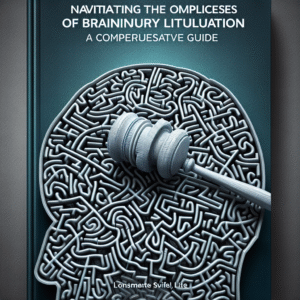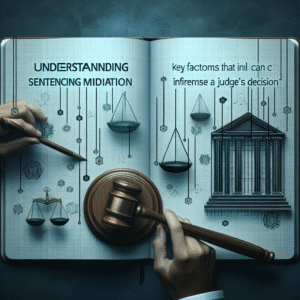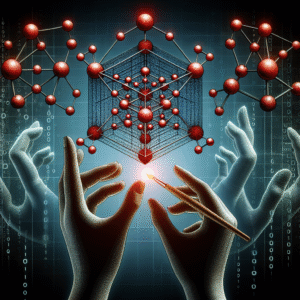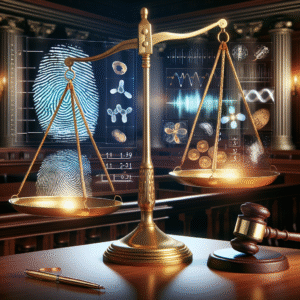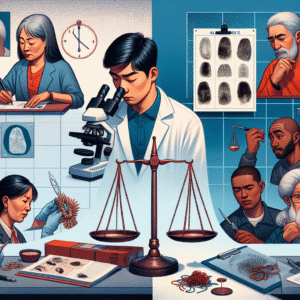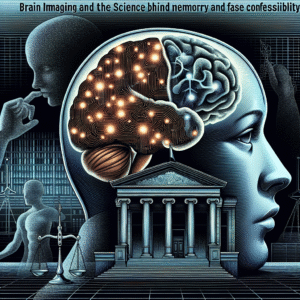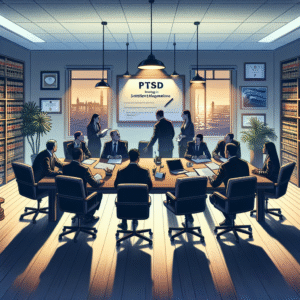Introduction In a world where legal rights can make or break a case, understanding Miranda competence has never been more crucial. The landmark Miranda v. Arizona decision in 1966 established a fundamental principle of American law: that individuals in police custody must be informed of their rights before being interrogated. Yet, the implications of these rights stretch far beyond...
Cultural Competence In Forensics
Introduction In the complex world of law enforcement, the interrogation room serves as both a battleground and a sanctuary for truth-seekers and storytellers alike. The age-old struggle to decipher fact from fiction has led to an evolution of techniques used by police officers around the globe. Unpacking the Tactics: A Deep Dive into Modern Police Interrogation Techniques is not...
In a world where justice hangs in the balance, the integrity of eyewitness testimonies plays a crucial role in the outcomes of criminal cases. Navigating the complexities of lineups—whether photographic or live—can mean the difference between wrongful convictions and ensuring justice is served. Perfecting the Lineup: Best Practices for Law Enforcement Procedures isn’t just a protocol; it’s a necessity...
Introduction Imagine that your most cherished memory has been tainted by a false detail, reshaping your recollection of a significant life event. This phenomenon, known as memory contamination, raises intriguing questions about the reliability of our memories and the implications for personal identity, justice, and mental health. As society increasingly delves into the complexities of memory, understanding the intricate...
Introduction Imagine a courtroom filled with tension, a child’s voice breaking the stillness as they recount a traumatic event. The legal significance of their testimony, often regarded as a pivotal element in many cases, raises important questions about the reliability of such accounts. The Eyes of Innocence: Evaluating the Reliability of Child Witness Testimonies explores the complexities surrounding child...
Introduction Every year, thousands of individuals suffer traumatic brain injuries (TBIs) that alter the trajectory of their lives. These injuries can be life-changing, impacting not just health but also families, finances, and futures. Given the emotional and psychological toll, it’s vital for victims to understand their rights and navigate the murky waters of brain injury litigation. This article, titled...
Introduction Imagine a world where detectives not only analyze physical evidence but also delve into the intricate neural pathways of the human brain to solve crimes. Welcome to the revolutionary domain of forensic neuroimaging—a burgeoning field that is transforming criminal investigations and offering insights into the human mind like never before. Unraveling the Mind: The Role of Forensic Neuroimaging...
Introduction In the rapidly evolving landscape of criminal justice, the intersection of mind and law has emerged as an essential focus for practitioners, scholars, and the public alike. With advances in neuropsychological forensics, we find ourselves at a fascinating crossroads where cognitive science meets legal principles. Understanding how neurological and psychological factors influence behavior is not just an academic...
Introduction Imagine standing on the edge of a mystery, one that invites you to explore the depths of the human soul. The tragic phenomenon of suicide plagues humanity, leaving behind unanswered questions and emotional turmoil. What drives an individual to take such a decisive step? Enter the world of psychological autopsy—where we aim to unravel the mind, dissecting the...
Introduction Navigating the intricacies of the legal system can feel like traversing a labyrinth—endless twists, turns, and seemingly insurmountable obstacles. For individuals grappling with Post-Traumatic Stress Disorder (PTSD), this journey can be even more daunting. Amid the pressures of litigation, the emotional and psychological toll can amplify, complicating matters further. Navigating the Legal Labyrinth: Understanding PTSD in Litigation resonates...
Introduction Trauma is an indelible part of the human experience, shaping lives in profound ways. From childhood abuse to natural disasters, the specter of trauma can take many forms, affecting mental, emotional, and even physical well-being. For mental health professionals, understanding trauma is not just an academic exercise; it’s essential to effective client treatment. This comprehensive guide focuses on...
Introduction The debate surrounding the death penalty, a practice with roots tracing back thousands of years, continues to evoke passionate arguments on both sides of the aisle. As we revisit this contentious issue, it is crucial to delve deep into the legal frameworks governing its use and the human rights implications that arise. From high-profile cases to sweeping legislative...
Introduction In an era overflowing with content, the ability to adapt information to fit your unique context is vital. Whether you’re a marketer, educator, or entrepreneur, the age-old adage "feel free to modify or combine these suggestions to suit your specific focus or audience!" has never been more applicable. This phrase captures the essence of creating tailored content that...
Introduction In today’s rapidly evolving landscape, especially in the realms of marketing, content creation, and communication, the ability to adapt is vital. Whether you’re crafting a blog post, designing an advertising campaign, or developing a product strategy, flexibility is essential. This brings us to our focal keyword: "Feel free to adjust or mix and match these suggestions to better...
Introduction In a world shaped by headlines and social media streams, the narratives crafted by the media have never been more influential. One of the most contentious topics, capital punishment, offers a revealing lens through which we can examine the media’s pervasive role. The media not only informs public perception but also molds societal attitudes toward justice and morality....
Introduction Imagine standing before a judge, your fate hanging in the balance. The courtroom is heavy with tension, emotions run high, and the outcome determines not just punishment but the course of your life. This scene is all too familiar in the world of criminal justice, where the concept of Understanding Sentencing Mitigation: Key Factors That Can Influence a...
Introduction The landscape of criminal justice has long been shaped by the desire to understand and predict violent behavior. As we delve into the intricate journey from offender profiling to risk assessment, we uncover the fascinating evolution of violence risk appraisal. This transformation not only helps professionals manage risk but also protects communities from potential harm. With forensic psychology...
Introduction In our increasingly interconnected world, the complexity of threats—be it from a healthcare crisis, cybersecurity breach, or natural disasters—demands a comprehensive approach to risk assessment and management. Deconstructing Threats: How Effective Assessment Can Save Lives not only relates to understanding what these threats entail but also emphasizes the importance of effective evaluation strategies that can mitigate risks and...
Introduction In an increasingly complex world, the art of negotiation serves as a powerful tool, especially in high-stakes situations like hostage crises. The stakes are often life and death, which makes it imperative for negotiators to draw lessons from real-world scenarios. The necessity for effective communication, understanding human psychology, and making split-second decisions are paramount. This article delves deep...
Introduction The issue of capital punishment has always ignited fierce discussions across social, political, and ethical spectrums. In the United States alone, the landscape surrounding the death penalty has evolved dramatically over the decades, profoundly influenced by shifting public opinions and landmark policy changes. As advocates grapple with moral dilemmas and opponents cite justice inequalities, the reality is straightforward:...
Introduction When we hear phrases like “justice is served,” we often visualize a courtroom drama—gavel slamming, a verdict read aloud, and the weighty consequences that follow. But what lies beneath these dramatic moments is a complex web of legal principles, societal values, and individual circumstances. This is where the crucial concept of sentencing mitigation comes into play. Is Justice...
Introduction In an age where the intersection of mental health, criminal justice, and public safety is more scrutinized than ever, understanding the Challenges and Controversies in Violence Risk Appraisal: Ethical Considerations and Implications is crucial. With rising concerns about violence in various settings—from schools to workplaces—effective risk appraisal remains an essential tool. However, as we improve our ability to...
Introduction In an age where threats are more pervasive than ever, the importance of collaboration in effective threat assessment cannot be overstated. Organizations and communities face increasingly complex risks—from cyberattacks and terrorism to workplace violence and natural disasters. By fostering a collaborative environment, organizations can enhance their threat assessment capabilities, drawing on diverse expertise and perspectives to inform better...
Introduction In a world where every moment counts and decisions can mean the difference between life and death, negotiation is an art that transcends mere conversation—it becomes a critical tool wielded in various high-stakes scenarios. When Words Matter: The Science of Negotiation in Life-or-Death Situations dives deep into how communication strategies can influence high-pressure encounters, whether in hostage situations,...
Introduction In a world increasingly governed by data and analytics, the conversation around capital punishment begs for a statistical lens. Data-Driven Justice: A Statistical Evaluation of Capital Punishment and Its Alternatives emphasizes the intersection of judicial reform and empirical research. As societies strive for a fair judicial system, understanding the effectiveness and moral implications of capital punishment, alongside its...
Introduction: The Vital Relevance of Sentencing Mitigation Sentencing mitigation has emerged as a cornerstone of modern criminal justice, transforming how we view justice, rehabilitation, and societal reintegration. With its roots deeply embedded in principles of fairness, it seeks to ensure that every individual is treated justly, accounting for their unique circumstances during sentencing. In this enlightening exploration titled The...
Introduction In an increasingly complex world, the mental health landscape is fraught with challenges that demand our attention. The delicate balance between understanding mental health disorders and addressing the potential for violence is a pressing issue in both clinical and community settings. How do professionals assess the risks of violence in individuals facing mental health challenges? This guide delves...
Introduction In a world rife with uncertainty, the effectiveness of emergency preparedness plans can determine the survival of individuals, communities, or entire organizations. Integrating Threat Assessment into Emergency Preparedness Plans is not just an additional layer; it’s an essential strategy that can mitigate risks and streamline responses. Whether it’s a natural disaster, an active shooter incident, or a public...
Introduction The legal system is often viewed as a rigid structure, where rules dictate outcomes, and justice is served through a strict lens. However, within this seemingly inflexible framework lies a crucial aspect of the judicial process: sentencing mitigation. The ability to understand and advocate for mitigating factors can profoundly alter a defendant’s life trajectory. The stories behind Lessons...
Introduction The complexities of human behavior, especially regarding violence, remain one of the most challenging areas in psychology, law enforcement, and public safety. Each year, countless lives are affected by violent incidents, only deepening the urgency to understand and predict these behaviors effectively. In this landscape, Expert Perspectives on Violence Risk Appraisal: What Works and What Doesn’t is a...
Introduction In an increasingly complex world, understanding and mitigating risks is more crucial than ever. Whether in cybersecurity, disaster management, or organizational strategy, Identifying Vulnerabilities: The Art and Science of Threat Assessment has become a foundational element for protecting assets, people, and reputations. The art lies in recognizing potential threats, while the science employs systematic methodologies to assess, analyze,...
Introduction In our fast-paced digital landscape, connecting with your audience has never been more crucial. Whether you’re a marketer, educator, or content creator, your ability to resonate with your target audience can significantly affect your success. When you hear phrases like "Feel free to mix and match or modify these to better fit your audience!", it encapsulates a vital...
In our increasingly unpredictable world, the importance of effective crisis communication cannot be overstated—especially in high-stakes situations such as hostage negotiations. Every second counts when lives are on the line, and the words chosen can have lasting implications. This article dives deep into "Crisis Communication: The Do’s and Don’ts of Hostage Negotiation," providing guidelines that could make the difference...
Introduction In today’s fast-paced world, the ability to adapt, innovate, and personalize has never been more crucial. Whether you’re in business, education, or your personal life, feeling free to mix and match elements from these suggestions or modify them to suit your specific angle! can spell the difference between stagnation and success. This principle applies universally, fueled by creativity...
Introduction In today’s fast-paced world, we are constantly bombarded with a plethora of ideas, templates, and methodologies. While these resources can be invaluable, they often come with restrictions that may limit their usability. This is where personalization shines. The phrase "Feel free to modify or combine these ideas to better fit your specific angle!" takes center stage, highlighting the...
Introduction In a world where innovation drives success, creativity has become the lifeblood of personal and professional growth. Whether you’re an entrepreneur, a writer, or a project manager, tapping into your creative potential can set you apart from the competition. So, let’s dive into a crucial mantra for creative exploration: Feel free to modify or combine these ideas! This...
Introduction In today’s digital landscape, creating content that resonates with your audience is paramount. The ability to personalize and modify material based on audience needs can transform any piece of content into a powerful tool for engagement, learning, and connection. In this ultimate guide, we’ll explore the importance of tailoring your content and how you can effectively apply the...
Introduction Capital punishment remains one of the most contentious issues in modern society, stirring passion on both sides of the debate. Is it a necessary tool for justice or an outdated relic of a bygone era? Understanding the long-term effects of capital punishment is not merely an academic exercise; it impacts communities, families, and the very fabric of society....
Introduction Can the judicial system truly be fair if it ignores the complex stories behind each defendant? With the conversation around criminal justice reform heating up, a critical component often gets overlooked: the importance of mitigation evidence in sentencing practices. Transforming sentencing practices: the emerging importance of mitigation evidence is not just a legal concern; it’s a moral imperative....
Introduction In an era defined by rapid technological advancement, the landscape of violence risk appraisal is on the verge of a monumental transformation. As society grapples with increasing concerns over violence, the intersection of technology and artificial intelligence (AI) emerges as a beacon of hope for more accurate and effective assessments. The future of violence risk appraisal: integrating technology...
Introduction In a world increasingly characterized by uncertainty and risk, the importance of threat assessment cannot be overstated. Organizations, governments, and communities face a myriad of potential threats, from cyberattacks to physical violence. With a strategic approach to threat assessment, institutions can effectively mitigate risks and respond to incidents before they escalate. This article—Case Studies in Threat Assessment: Lessons...
Introduction In the pursuit of justice, forensic science stands as an enduring beacon of truth, illuminating the obscured and unraveling the complexities of criminal cases. Imagine a world where justice is blind to evidence and facts; such a reality would unjustly toll the lives of many innocent people while allowing the guilty to roam free. In this article, we...
Introduction In a world marked by increasing diversity, the importance of cultural competence as a tool for equity in forensic investigations cannot be overstated. The nuances of culture influence not only social interactions but also the processes of justice and investigation. Imagine a scenario where a critical oversight in understanding cultural dynamics leads to wrongful interpretations and, ultimately, a...
Introduction Forensic psychology stands at the intersection of two worlds: the intricate realm of criminal justice and the nuanced field of psychology. As both a science and an art, it seeks to understand the mind of individuals involved in criminal behavior, making it an invaluable asset in legal proceedings. However, where the rigid structures of law meet the fluid,...
Introduction In today’s fast-paced and ever-evolving environment, adaptability is king. Whether you’re in business, art, or daily life, the ability to customize and integrate various elements to suit your specific needs can lead to unparalleled success and satisfaction. This article delves into the philosophy of flexibility with a focus on the mantra “Feel free to mix and match elements...
Introduction Imagine a high-stakes scenario where emotions are running wild, lives hang in the balance, and every second counts. It’s a tense situation where fear and desperation collide, yet amid the chaos stands a calm, composed figure—the hostage negotiator. These unsung heroes operate behind the scenes, applying psychological tactics to transform dire circumstances into hopeful outcomes. In this article,...
Introduction In today’s fast-paced world, personalization is not just a trend—it’s a necessity. Whether in marketing, education, or personal development, the call for custom solutions is louder than ever. This leads us to the mantra "Feel free to modify these to better fit your article’s focus!"—a phrase that encapsulates the essence of tailoring content to meet the unique needs...
Introduction In a world flooded with information, the key to success lies in adaptability. Whether you’re a student, a marketer, or a creative professional, the ability to mix and match elements or modify them to better fit your desired focus can open up new horizons. Imagine being able to tailor your approach—strategies, ideas, and content—to perfectly resonate with your...
Introduction In today’s fast-paced world, adaptability is key to success. Whether you’re crafting a business proposal, developing a personal project, or looking for ways to streamline your workflow, the phrase "Feel free to modify any of these to better suit your needs!" couldn’t resonate more profoundly. This guiding principle not only empowers individuals and teams to customize their approaches...
Introduction In an age where information flows rapidly and attention spans dwindle, creating captivating content is more crucial than ever. The phrase “Feel free to adjust these based on the specific angle or focus of your articles!” resonates deeply with writers and content creators alike, emphasizing the importance of adaptability. Whether you’re a seasoned content marketer or just starting...
Introduction Imagine a scenario in a dimly lit interrogation room, where a suspect confesses to a crime they didn’t commit. It’s a dramatic representation of a distressing reality: false confessions are not just possible; they occur more frequently than one might think. The intersection of psychology and neuroscience illuminates this phenomenon, shedding light on how memory works and why...
Introduction In an age where creativity and adaptability are the foremost currencies, the ability to curate and customize diverse ideas has become essential. Whether you’re crafting a marketing strategy, brainstorming content, or embarking on personal projects, the phrase “Feel free to modify or combine these ideas to better suit your needs!” is not just a suggestion; it’s an invitation...
Introduction Every 40 seconds, someone loses their life to suicide, a tragedy that resonates deeply within families and communities. The haunting question that follows these losses is often, "Why?" As the world grapples with rising suicide rates, innovative methodologies are desperately needed in suicide prevention efforts. One such method, psychological autopsies, stands out as a potentially transformative approach. This...
Introduction Imagine standing in a courtroom, the air thick with tension and the weight of trauma palpable. For many, the litigation process can feel like a relentless replay of their worst fears, particularly for those grappling with Post-Traumatic Stress Disorder (PTSD). “Litigating Trauma: Strategies for Addressing PTSD in Settlement Negotiations” isn’t just a legal topic; it’s a pivotal aspect...
Introduction Imagine a world where every individual who has experienced trauma receives personalized, timely, and effective support. The future of trauma assessment is on the cusp of a transformative leap, thanks to emerging innovations and trends shaping how we understand and address trauma’s complexities. The evolution of trauma assessment is not just important; it’s essential. As we uncover new...
Introduction In a world where morality, justice, and human rights collide, capital punishment stands as one of the most contentious issues of our time. As societies around the globe grapple with the implications of state-sanctioned death, the evaluation of capital punishment offers unique insights into cultural norms, legal frameworks, and ethical dilemmas. This article, "Global Perspectives: How Capital Punishment...
Introduction When we think of the justice system, images of courtrooms, stern judges, and strict laws often come to mind. Yet behind these rigid structures lies an essential element that can reshape lives: mitigation. The Human Side of Sentencing: Why Mitigation Matters in the Justice System is not just a legal consideration; it encapsulates the very essence of justice,...
Introduction In an age where safety is a growing concern for communities worldwide, the quest for practical and effective prevention strategies has never been more critical. As violence continues to plague neighborhoods and cities, innovative solutions are being sought to address the root causes and reduce the risk of violent incidents. One powerful tool emerging in this context is...
Introduction In an era defined by rapid technological advancement and evolving threats, the debate of Proactive vs. Reactive: The Essential Role of Threat Assessment in Risk Management has emerged as a crucial topic for organizations of all sizes. The stakes are high: decisions made today can save companies from significant losses in the future. This article will delve into...
Introduction Forensic reports can often feel like the veritable backbones of criminal investigations—a detailed tapestry woven together by science, skill, and meticulous attention to detail. Whether deciphering the complexities of a homicide investigation or distilling the evidence in a corporate fraud case, the significance of a well-crafted forensic report cannot be overstated. In this comprehensive deep-dive, "Analyzing the Anatomy...





